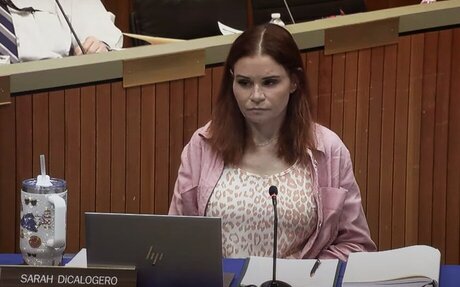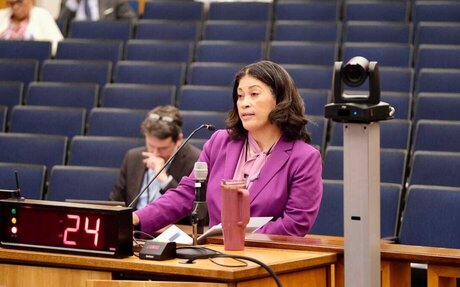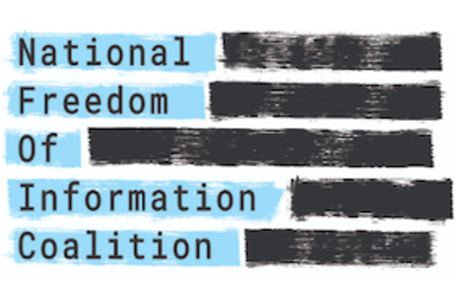|
|
0 7 . 1 7 . 2 5
All Access
7 items
|
|
|

|
Guest column-Maddie Walker
The process for locating a school board district’s policy on public comment periods may sound simple, but, in some cases, it is anything but. I searched for the policy for 10 school board districts in Virginia and was surprised to discover how hidden and/or nondescript some are. Had I not been someone with time who knows their way around a computer, some of these policies may have stayed hidden from me.
|
|
|

|
Local
In an email, obtained through a public records request, Norfolk City Attorney Bernard Pishko told Norfolk School Board Chair Sarah DiCalogero “there is a school administration to run. If we do not very soon have an executed separation agreement from Sharon [Byrdsong] id (sic) be inclined to proceed with the needed public vote to accept the resignation and separation agreement and the appointment of an interim.” Byrdsong did not resign, and no separation agreement was voted on or announced on June 11 when a 4-3 vote terminated her contract without cause. That runs counter to state law, which requires school boards to publicly announce severance benefits prior to termination. Norfolk Public Schools’ Freedom of Information office replied to a request for any separation agreement by pointing to Byrdsong’s contract. In an email exchange obtained through a different request, Jack Cloud, a deputy city attorney who works with the board, told the school system’s Freedom of Information officer, “the Board has never voted to approve any ‘separation agreement’ in connection with the termination of the superintendent, either on June 11th or any other date. The superintendent was terminated pursuant to relevant provisions within her contract.” Pishko said the public disclosure of her severance was clear in her contract and therefore unnecessary before the termination vote. Andrew Fox, a deputy city attorney who handles school board matters, wrote in an email that a printed draft separation agreement was circulated among board members. He retrieved all copies and noted it is not subject to a records request under the attorney-client work product exemption.
|
|
|

|
Local
In what will likely be her last presentation to the Richmond City Council, departing Finance Director Sheila White said the office she’s led has made substantial progress, while warning that “pockets of secrecy and sabotage” remain. One of White’s presentation slides at Wednesday’s meeting described the department’s culture as it used to be versus where it stands today. In the past, the slide said, there were “cliques,” “diminished professionalism,” a “lack of urgency” and “secrecy and sabotage.” In the present, the slide said, there’s a more cohesive and professional team with a stronger focus on the customer. But there are still “pockets of resistance to adherence to core values,” “pockets of cliques” and “pockets of secrecy and sabotage.” White didn’t go over each item on the slide, and none of the three Council members on the committee asked White to elaborate on how sabotage affects the Finance Department’s culture.
|
|
|

|
Local
Danville’s city attorney laid out the process Tuesday night for replacing the Danville City Council member who wins the House of Delegates 49th district seat in November. “Council will go through [applications and resumes] and decide how many and which people they want to have as finalists for the position,” he said. “The person who is the last, the latest, runner-up in the last council election will automatically be considered a finalist.” As for the next step in the appointment process, the City Council will announce their selection of finalists — as well as interview them — in an open, public meeting at least seven days before they make their choice, Whitfield said. City Councilman Lee Vogler said this year’s process for choosing an appointee is different from the one from 2020, when Adam Tomer left his seat in the middle of his term. For the first time, however, there will be public interviews of those interested in filling the upcoming vacancy, Vogler said. That’s because of recent changes in Virginia state law and the city’s charter, as well as a review of the city code, Whitfield said.
NOTE: One of those state laws — public announcement of candidates at least 7 days before appointment — is from VCOG’s bill from 2024.
|
|
|

|
Nationwide
Journalism relies on public records, but transparency laws are weakening nationwide, with longer response times, high fees and more frequent rejections. Agencies know that few newsrooms can research and push back on denials, and even fewer can litigate. This blocks both critical local accountability reporting and enterprise investigations, leaving the public in the dark. A new partnership led by MuckRock and involving the National Freedom of Information Coalition (NFOIC), the Reporters Committee for Freedom of the Press and the Brechner Freedom of Information Project is working to even the playing field. The initiative brings together the resources of each organization and connects journalists with the country’s foremost records experts at the state level who have deep, local knowledge of laws, judicial precedents and strategies that can help them overcome challenges.
NOTE: VCOG serves as the administrator for NFOIC
|
|
|

|
Nationwide
Whether they appear in a yellow lined notebook or on white printer paper, government documents are government documents. The color of the paper doesn’t change that the public has a right to the information. The words on the page could reveal recent violations, annual spending or a new proposal. And if the yellow lined paper becomes a text message? Well, the information hasn’t changed. And, usually, neither has the public’s right to know. Text messages are public records. Yet even the advanced FOIA user can get tied into knots around public records and texts. Texts are one of the most private areas of our lives. No one else reads our text messages. Most of the time, we don’t even read our text messages. The feeling that emails (the close cousin of texting and a common FOIA request) are less private than texts is self-evident. You conduct business over email, you don’t send pictures of your dog to everyone. Your work email sits on server space owned by your employer. But if you’re a public employee conducting public business, email and text messaging are just the white and yellow lined paper of digital communications.
|
|
|

|
In other states-Connecticut
Probably the most fundamental rule of filing a Freedom of Information Act (FOIA) request is specificity. The more clear your language and the more narrow your request, the more likely you are to receive records that are actually responsive in as timely a fashion as possible. But the reality of FOIA is that’s not always possible. Part of the point of FOIA is obtaining information that, while public, isn’t public-facing. And that means there can be unknown unknowns….When this happens, it can feel like you’re playing FOIA whack-a-mole. Filing FOIA requests requires due diligence and an investment of time. It’s easy to become discouraged when you put your best efforts into trying to obtain public information and, based on administrative details you couldn’t have known, you come up empty handed.
|
|
|
|
|
|
|
|
|